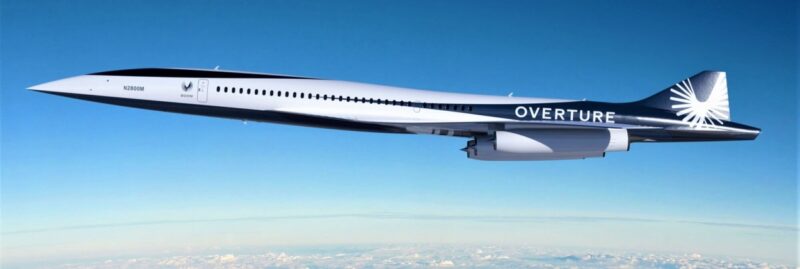CFM International will not supply engines for Boom’s supersonic jet

Boom Technology’s plan to introduce an ultra-high-speed commercial jet by 2029 are complicated by the lack of participation from aircraft engine developers.
CFM International will not be the engine supplier to Boom Technology in that company’s development of an ultra-high-speed aircraft – a “supersonic jet” that reportedly will travel at up to Mach 1.7 (1,307 mph / 1,800 km/h.)
CFM chief executive Gael Meheust, while speaking to an aerospace industry conference, said efforts to develop an engine to power a super-high-speed aircraft would distract the business from its other goals. CFM, like other jet-engine OEMs, is developing a range of new engine technologies to reduce carbon emissions and noise emissions.
New engine development is an expensive and prolonged process, requiring not only resources and skills but the facilities for prototyping and testing different component parts and systems.
Boom Technology was founded in 2014 to introduce supersonic business or private aircraft. While its plans have evolved, it now has orders for 130 of its planned Overture supersonic commercial jets, including orders from American Airlines, Japan Airlines, and United Airlines. Initially a two-engine design, the Overture is now projected as a four-engine jet to carry 65 to 80 passengers at speeds that would slash flight times on major long-distance routes.
Scheduled for introduction in 2029, the Overture jet will have a range of 4,250 nautical miles (or 4,888 miles), traveling at twice the speed of today’s fastest commercial aircraft.
Boom has stated that Overture is being designed to fly more than 600 routes around the world in as little as half the current time, for example, London-to-Miami in less than five hours, and Los Angeles-to-Honolulu in three hours.
The switch to a four-engine design, revealed at this year’s Farnborough Air Show, is thought to make it possible to achieve supersonic speed with some current engine technology – shortening the development time for a potential engine supplier.
However, the planned aircraft has no engine supplier, yet. Because CFM is a 50-50 joint-venture GE Aviation and Safran Aircraft Engines, its lack of interest in the supersonic project probably also cancels Boom’s prospects of working with either of those two manufacturers.
Two years ago Boom linked up with Rolls-Royce to study engine technologies suitable for the Overture, but that cooperation has ended. In a September statement, Rolls explained:
“After careful consideration, Rolls-Royce has determined that the commercial aviation supersonic market is not currently a priority for us and, therefore, will not pursue further work on the program at this time. It has been a pleasure to work with the Boom team and we wish them every success in the future.”
Reportedly, engine manufacturers Honeywell and Pratt & Whitney also have shown no interest in joining the Boom project. americanmachinist.com
